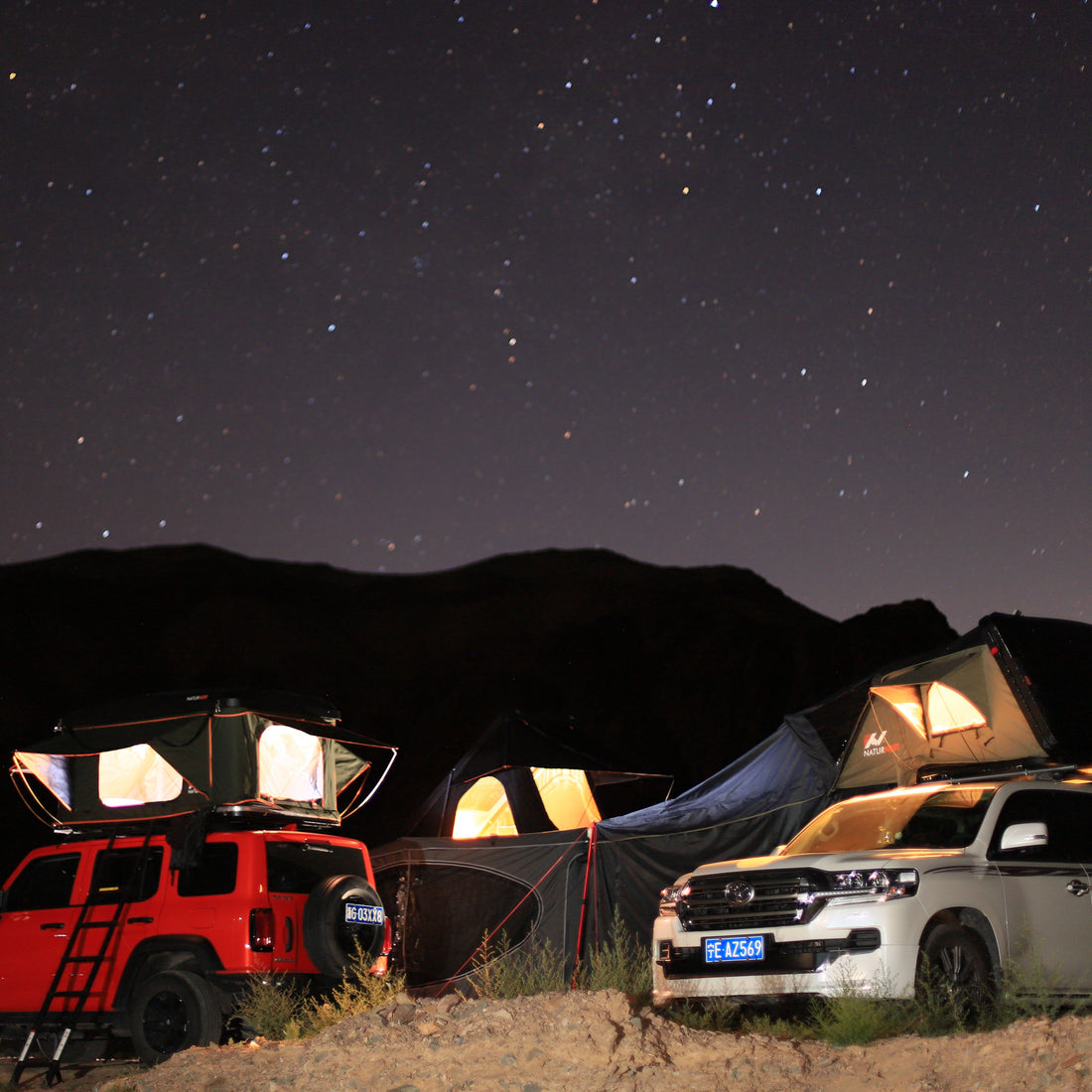Camping is a captivating outdoor activity that allows us to temporarily escape the hustle and bustle of city life and immerse ourselves in nature's embrace. However, while indulging in the beauty of the outdoors, safety concerns should not be overlooked. In this blog, we will explore various situations you might encounter while camping in a tent and provide emergency measures to help you ensure safety, allowing you to enjoy your camping experience to the fullest.
Weather Changes
Weather can be unpredictable while camping. Sudden rain, strong winds, or extreme temperatures can impact your camping experience. To cope with these situations, it’s essential to check the weather forecast for your destination before setting out and adjust your plans accordingly. If the forecast indicates severe weather, it’s best to choose waterproof and wind-resistant tents, such as the high-performance tents we offer, to keep you dry and comfortable during adverse conditions. Additionally, prepare some backup gear, like waterproof tarps and insulated sleeping bags, to help you survive comfortably in extreme weather.

Wildlife Threats
During camping, you may encounter various wildlife, such as bears and foxes, which may be attracted by the smell of food. To ensure safety, first, securely store food in sealed containers and hang them at least 10 feet off the ground from a tree branch. Moreover, when selecting your tent, focus on its secure closure system to effectively reduce the risk of wildlife encounters. During your camping trip, keep your campsite clean by promptly clearing away trash and food scraps to prevent attracting wildlife.

Fire Safety
Using stoves and campfires during camping can lead to fires or poisoning, so caution is paramount. Before lighting a campfire or using a stove, ensure you understand the proper usage methods and prepare a fire extinguisher or firefighting equipment to address any uncontrolled flames quickly. When lighting a campfire, choose a safe location away from tents and flammable materials, ideally in a flat, windless area to minimize fire risks.

Terrain and Environmental Factors
Unstable terrain can lead to slips, falls, and other accidents. When choosing a camping spot, prioritize flat, dry areas and avoid setting up tents on steep slopes or near rivers. Additionally, wear suitable hiking shoes and protective clothing to reduce the risk of injury. Familiarize yourself with the surrounding terrain beforehand to identify potential hazards and maintain awareness during your camping trip to avoid accidents.
Personal Health Issues
Health problems such as allergies and insect bites can arise during camping. Therefore, it’s important to prepare a first aid kit that includes band-aids, pain relievers, and antihistamines to handle any unexpected health issues. Be aware of potential allergens and avoid contact with them, and maintain personal hygiene by washing your hands regularly to prevent foodborne health issues.
Preventing Getting Lost
The risk of losing your way increases in remote areas while camping. Using maps and compasses is necessary; learn how to use these tools before setting out to ensure you can find your way when needed. Additionally, download offline maps or carry a GPS device to aid navigation and ensure you always know your location.
Overnight Camping Situations
Camping overnight brings additional challenges, such as staying warm, secure, and comfortable throughout the night. To ensure a safe overnight experience:
Choose a Safe Location: Select a flat, dry area away from potential hazards like falling branches or flooding. Ensure your tent is properly staked down to withstand wind.
Warm Sleeping Arrangements: Use insulated sleeping bags rated for the temperatures you might encounter and consider sleeping pads to provide extra insulation from the cold ground.
Secure Your Tent: Ensure your tent zippers are closed securely to prevent insects and small animals from entering. Additionally, place valuable items inside the tent, out of sight, to deter theft.
Stay Alert: Be aware of your surroundings and listen for unusual sounds during the night. If you hear wildlife or other disturbances, remain calm and assess the situation before reacting.
Emergency Plan: Have a plan in place in case of emergencies, such as a sudden change in weather or wildlife encounters. Designate a meeting point and establish communication methods with your camping companions.
Conclusion
Camping safely is not just about avoiding dangers; it's about ensuring you can enjoy the intimate connection with nature. By taking appropriate preventive measures and being prepared for emergencies, you can reduce potential risks and make your camping trip more enjoyable. I hope these tips help you stay safe and comfortable during your next camping adventure, allowing you to fully appreciate the beauty of nature! If you have any other camping safety experiences or advice to share, feel free to leave a comment below and engage with others!

